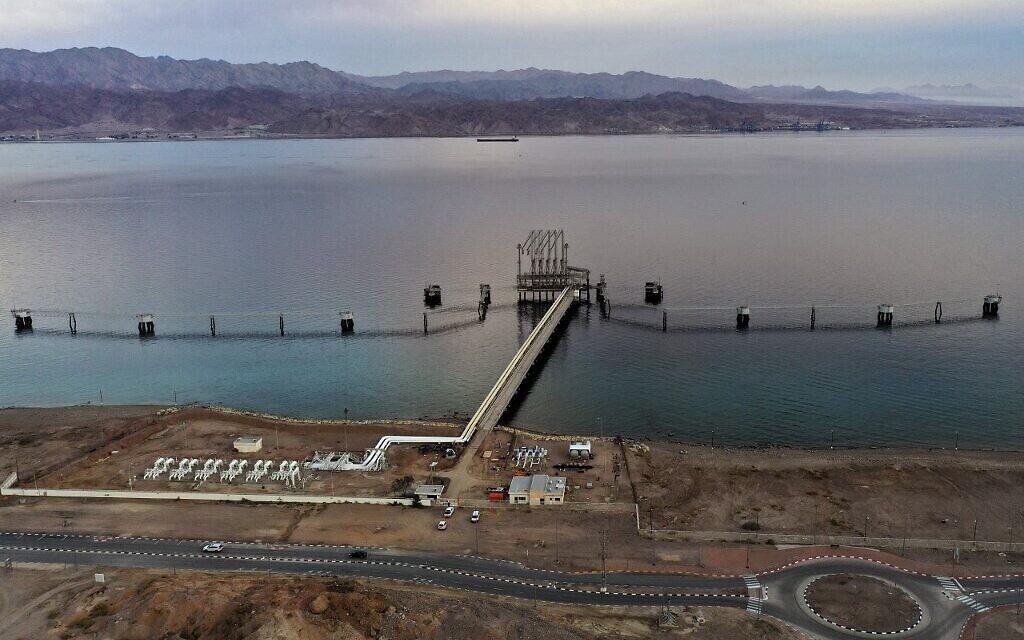Getting your Trinity Audio player ready...
Israel will build a 254-kilometer (158 mile) fiber-optic cable between the Mediterranean and Red Sea, creating a continuous link between Europe and countries in the Gulf and Asia, the Finance Ministry said on Sunday.
More Stories:
State-owned energy group EAPC, the Eilat-Ashkelon Pipeline Company, will build the cable along the route of an oil pipeline it operates across Israel from the Mediterranean port of Ashkelon to Eilat on the northern Red Sea, the ministry said in a statement.
1 View gallery


Eilat-Ashkelon Pipeline Company's (EAPC) oil terminal at Israel's southern Red Sea port city of Eilat
(Pיםאם: AFP)
The project, said EAPC Chief Executive Itzik Levy, "will position Israel as a communication land bridge connecting the Gulf countries and Asia to Europe."
The cable will hook up to subsea cables that reach Israel's shores. It will be available to any telecom company licensed in Israel under a 25-year lease, the ministry said
EAPC, or the Europe Asia Pipeline Company, offers its pipeline as an alternative to the Suez Canal.
Environmental groups have long called it a hazard and questioned the company's safety record. Most notably, in 2014 a pipeline breach flooded a desert nature reserve with 5 million liters of oil
The ministry said the fiber-optic deployment along the pipeline route will help monitor any changes in terrain and detect possible leaks.

